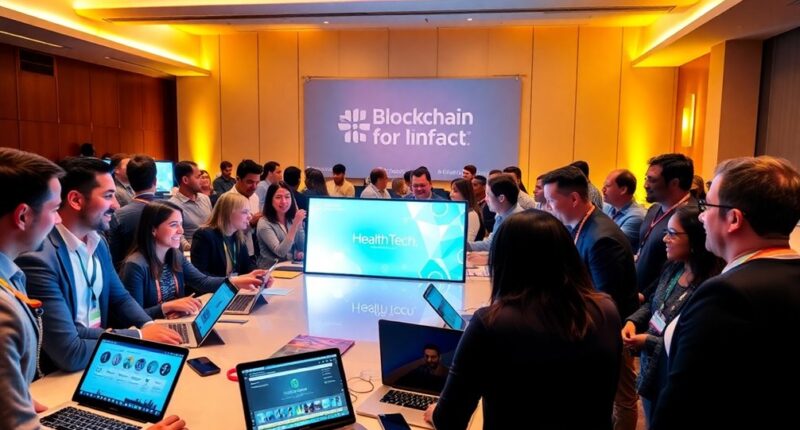You've likely heard about the transformative potential of blockchain technology, but its application in India's health tech sector is particularly compelling. Blockchain for Impact is teaming up with key organizations to address pressing public health issues. With support from UNICEF and institutions like IIT Bombay, they're set to create significant changes in healthcare access and efficiency. What exactly does this mean for the future of health in India? Let's explore the possibilities.

As India faces pressing public health challenges, blockchain technology emerges as a powerful tool to drive innovation in healthcare. The partnerships and collaborations formed by Blockchain For Impact (BFI) are laying the groundwork for significant advancements in the sector. By teaming up with institutions like the CSIR-Central Drug Research Institute, BFI focuses on enhancing biomedical research and tackling diseases such as malaria and dengue. This collaboration highlights how blockchain can facilitate research that directly impacts public health.
Moreover, BFI's strategic partnership with IIT Bombay underscores the commitment to healthcare innovation, with a substantial $900,000 funding allocation over three years. This collaboration paves the way for groundbreaking research that could revolutionize healthcare delivery in India. The alliance with UNICEF is another critical component, as it brings $2.1 million to strengthen public health practices in regions like Meghalaya while also establishing a health fellowship that spans the nation. These partnerships create a robust network aimed at improving healthcare accessibility and affordability, particularly for marginalized communities.
The technical applications of blockchain in healthcare are equally compelling. By providing a secure platform for managing health data, blockchain reduces the risk of breaches and enhances transparency. This is particularly important in an era where data integrity is paramount. Blockchain also streamlines supply chain management in pharmaceuticals, ensuring that medicines are authentic and processes are efficient. India's biomanufacturing industry is projected to reach $130 billion by 2024, showcasing the growing importance of innovative healthcare solutions.
With blockchain, managing clinical trials becomes more transparent, allowing stakeholders to trust the results. Furthermore, the health information exchange becomes seamless and secure, enabling effective communication among healthcare providers. Revenue cycle automation through blockchain reduces administrative burdens, freeing up resources to focus on patient care.
BFI's commitment to funding and investments, including the $15 million BFI-Biome Initiative and over $150,000 for healthcare-focused startups at IIT Kanpur, demonstrates a proactive approach to fostering innovation. The potential impact of these initiatives extends beyond India. As BFI collaborates with institutions such as the Indian Institute of Science and the Translational Health Science and Technology Institute, the global community stands to benefit from the technological advancements and research breakthroughs.








